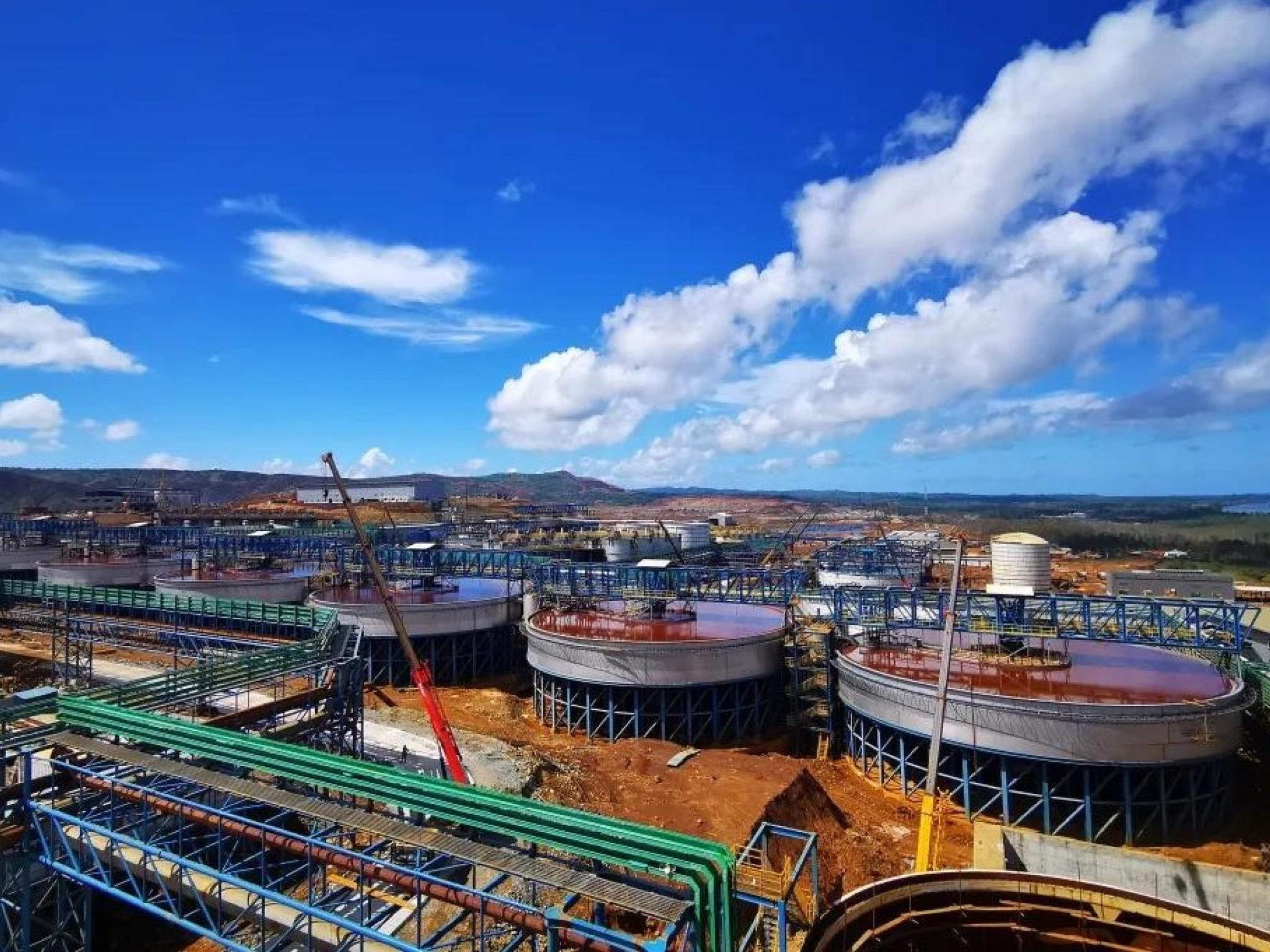
Key takeaways:
- Lygend Resources has filed for a Hong Kong IPO, hoping to draw investors as demand for its core nickel business booms on demand from EV battery makers
- Company’s business expansion requires big capital spending, which will remain one of its biggest challenges going forward
By Lau Ming
Demand for batteries and their components is soaring on the rise of electric vehicles (EV), sparking big competition among companies racing to cash in on the craze. One of those, nickel products maker Lygend Resources & Technology Co. Ltd, is trying to stay ahead of the pack by expanding both its upstream and downstream business, and is hoping to fund those plans through a newly announced Hong Kong IPO.
Nickel was traditionally used mostly to make stainless steel. But now demand for the metal is surging with the recent boom in the EV battery business. Ternary polymer lithium batteries use nickel, cobalt and manganese for their cathodes. High-nickel-content ternary lithium batteries have more nickel inputs and thus higher energy density, which translates to the longer EV ranges consumers are increasingly demanding. Coupled with much cheaper prices for nickel compared with cobalt, high-nickel-content ternary lithium types are becoming the batteries of choice for commercial EV makers. That’s bringing immense opportunities for companies like Lygend.
But there’s a catch. China is the largest nickel consumer, but it actually has very limited reserves and imports most of the metal it consumes. In 2020, China accounted for a whopping 82.3% of the global nickel trade. That figure will remain high as the volume of such trade between China and the rest of the world is expected to grow at a compound annual rate of 12.2% between 2020 to 2026, according to third-party data cited in Lygend’s IPO prospectus.
That prospectus shows that Lygend is China’s largest trader of nickel resources, accounting for around 30% of national imports. It’s also the fourth largest nickel trader in the world, meaning it could be well positioned to benefit from rapidly rising demand for the metal.
The world’s main nickel suppliers are currently located in countries including Indonesia, India, the Philippines, Russia, Turkey and Guatemala. Indonesia, which accounts for 30% of the world’s output, started to prohibit the export of nickel ore in 2020, and only allows exports of locally manufactured nickel products to develop the domestic industrial chain for the metal.
That has led local trading companies and Chinese enterprises with operations in the country to start investing locally in the manufacture of nickel products. In the last year alone, the likes of Zhejiang Huayou Cobalt(603799.SH), CNGR Advanced Material (300919.SZ), EVE Energy (300014.SZ) and Ganfeng Lithium (1770.HK, 002460.SH) have all made such investments.
Lygend dipped its toe into that mine much earlier, even before the new government policy. In 2018, it started to collaborate with Indonesian partners and invest in high pressure acid leach process (HPAL) projects. Two production lines in that space have already come online, churning out 37,000 metric tons of metal every year. Another four lines producing nickel-cobalt alloys are under construction and expected to be up and running this year and next, which will ultimately triple the project’s current output.
Lygend is also working with local partners to develop rotary kiln-electric furnace process (RKEF) projects, with 20 ferro-nickel production lines now being built and expected to become operational this year with an annual capacity of 280,000 metric tons. Lygend holds 36.9% and 65% of the equity in the first and second phases of the project, respectively. Most of the money it plans to raise through the IPO will be invested in the third phase of the HPAL project and the second phase of the RKEF project.
On the downstream side, the company has co-founded Ningbo Puqin with CATL (300750.SZ), the world’s leading EV battery maker, to focus on the development and operation of EV battery projects. That joint venture will also receive some money from Lygend’s upcoming IPO.
Well positioned
With its integrated ecosystem of nickel-related assets, Lygend stands to benefit from the rapid growth of demand in all dimensions for the metal, which could contribute to its long-term revenue and profit growth. Its wide-ranging presence across the industry also makes the company less susceptible to fluctuations for any individual part of its operations. And its upstream assets can ensure a steady supply of raw materials for the downstream business, thus improving gross margins and profitability for the downstream business.
But the upstream business’ capital-intensive nature means it requires constant new capital, which will inevitably pressure the company’s cash flow. The company’s capital spending totaled 1.59 billion yuan ($250 million) in the two years and nine months through last September, leaving it with only 690 million yuan ($108 million) in cash and cash equivalents by that time. That shows it may be low on funds at the moment, and why it is turning to an IPO to raise more.
One future challenge will be big swings in nickel and nickel product prices, which could make operating profitability more difficult. The spot price of nickel on the London Metal Exchange (LME) recently rose to $24,100 per metric ton, its highest level in 11 years. That might help the company’s earnings in the short term. But Lygend also worries that if prices continue to rise, customers might seek alternatives to high-nickel-content ternary batteries to power EVs, driving them to other battery types or non-battery solutions that would reduce nickel demand.
But for the present, at least, things look good for the company. Its revenue and profit have been growing steadily in recent years, reaching 8.29 billion yuan and 415 million yuan in the first nine months of last year, respectively, representing year-on-year growth of 58% and 82%. Using projected price-to-earnings (P/E) ratios for two Hong Kong listed nickel-cobalt producers, 19 times P/E for China Molybdenum (3993.HK) and 8 times for Jinchuan Group (2362.HK), Lygend may be able to get an IPO valuation of HK$7.5 billion ($960 million), based on its projected profit for this year.
It’s worth noting that the other two companies own nickel and cobalt mines among their assets in addition to refining operations, but Lygend Resources does not. Such an absence reduces risk related to price fluctuations for mining resources, which should help to stabilize its financial performance versus traditional resource extraction companies.
At the end of the day, hot demand for nickel products at the moment seems to vindicate Lygend Resources’ early decisions to invest in the upstream business and expand downstream as well. But the bottom line will be strong and sustainable profits, which could remain a challenge as the EV sector remains in its formative stages.







